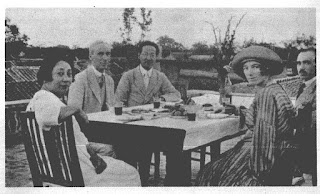Filipinx Victory Witherkeigh is an established writer of short stories, and a debut novelist. She is currently living Las Vegas.
The Girl is a young adult novel that subverts expectations to explore the idea that a girl's true self is more important than what she's been told. Breaking through good girl, virginal heroine stereotypes and inspired by mythology and gods, the novel asks the reader to think about what is good and what is evil.
The Girl follows a nameless main character. She’s been told since a very young age that she was a mistake, a demon who shouldn’t have been born. Shunned by her parents, she’s shuffled between theirs and her grandparents’ homes until her eighteenth birthday. The Girl is baffled by her ordinary life in Los Angeles. For all intents and purposes, she’s just like everyone else. That is, until the Demon comes to claim her.
Victory refers to her Filipinx / Pacific Islander heritage throughout The Girl. She combines pre-colonial myths of gods and demons with a modern setting, to create a coming-of-age story of a first generation-born American. To coincide with the close of Filipino American Heritage Month in the USA, she here talks about using Filipino mythology in her writing.
Asian Americans and Pacific Islanders are known in America as AAPI, and the term Filipinx has there been adopted to refer to people of Philippine origin or descent; it is used to indicate gender-neutrality in place of Filipino or Filipina. Now we know this, over to Victory...




